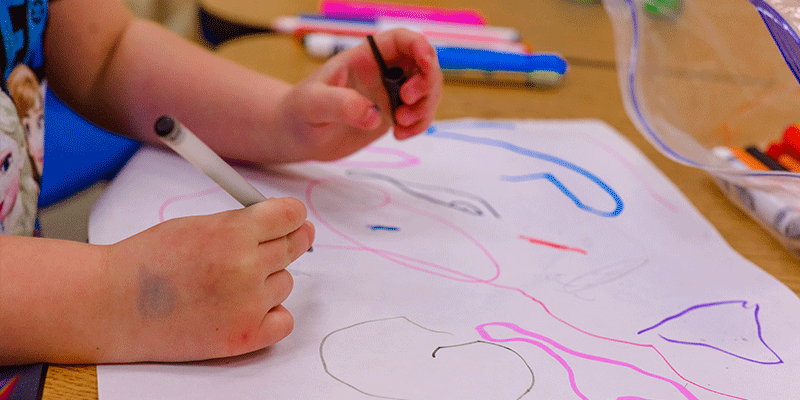
By age four, your child is beginning to explore many basic concepts that will be taught in greater detail in school. For example, he now understands that the day is divided into morning, afternoon, and night, and that there are different seasons. By the time he’s five and entering kindergarten, he may know some days of the week and that each day is measured in hours and minutes. He also may comprehend the essential ideas of counting, the alphabet, size relationships (big versus small), and the names of geometric shapes.
There are many good children’s books that illustrate these concepts, but don’t feel compelled to rush things. There’s no advantage to him learning them this early, and if he feels pressured to perform now, he actually may resist learning when he gets to school.
The best approach is to offer your child a wide range of learning opportunities. For instance, this is the perfect age to introduce him to zoos and museums, if you haven’t done so already. Many museums have special sections designed for children, where he can actively experience the learning process. At the same time, you should respect his special interests and talents. If your child seems very artistic, take him to art museums and galleries, or let him try a preschool art class. Also, if you know an artist, take him for a visit so he can see what a studio is like. If he’s most interested in machines and dinosaurs, take him to the natural history museum, help him learn to build models, and provide him with construction kits that allow him to create his own machines. Whatever his interests, you can use books to help answer his questions and open his horizons even further. At this age, then, your child should be discovering the joy of learning so that he will be self- motivated when his formal education begins.
You’ll also find that, in addition to exploring practical ideas, your four-year-old probably will ask many “universal” questions about subjects such as the origin of the world, death and dying, and the composition of the sun and the sky. Now, for example, is when you’ll hear the classic question “Why is the sky blue?” Like so many other parents, you may have trouble answering these questions, particularly in simple language your child will understand. As you grapple with these issues, don’t make up answers; rely instead on children’s books that deal with them. Your local library should be able to recommend age-appropriate books to help you.
Last Updated 11/2/2009
Source Caring for Your Baby and Young Child: Birth to Age 5 (Copyright © 2009 American Academy of Pediatrics)
The information contained on this Web site should not be used as a substitute for the medical care and advice of your pediatrician. There may be variations in treatment that your pediatrician may recommend based on individual facts and circumstances.






